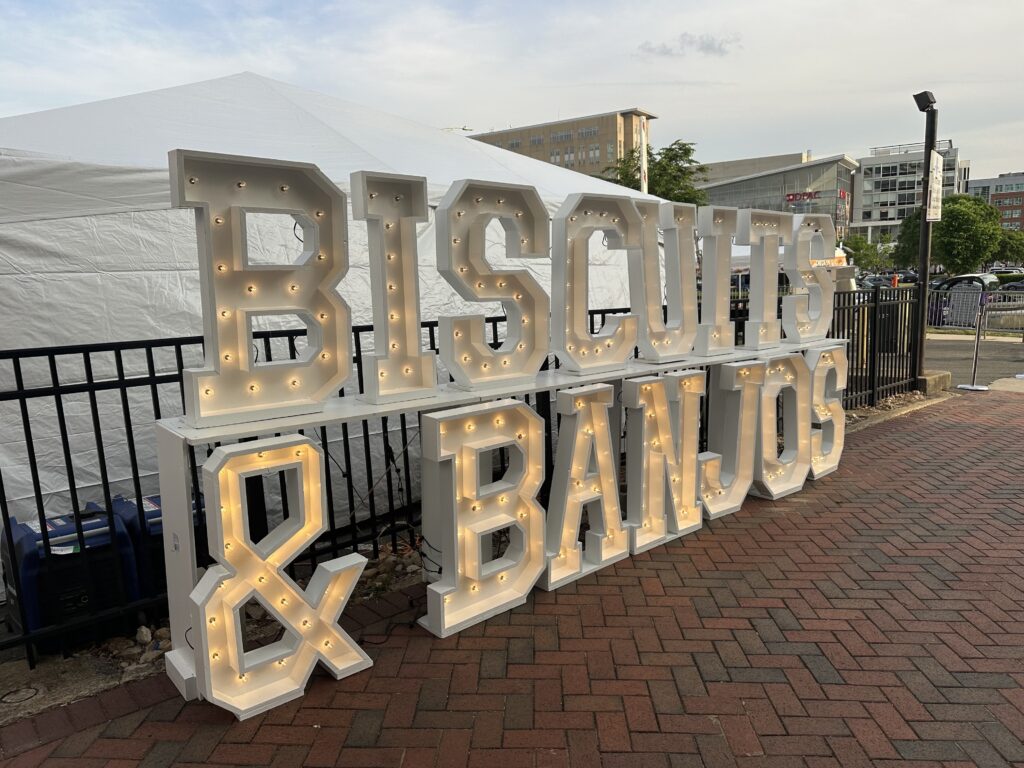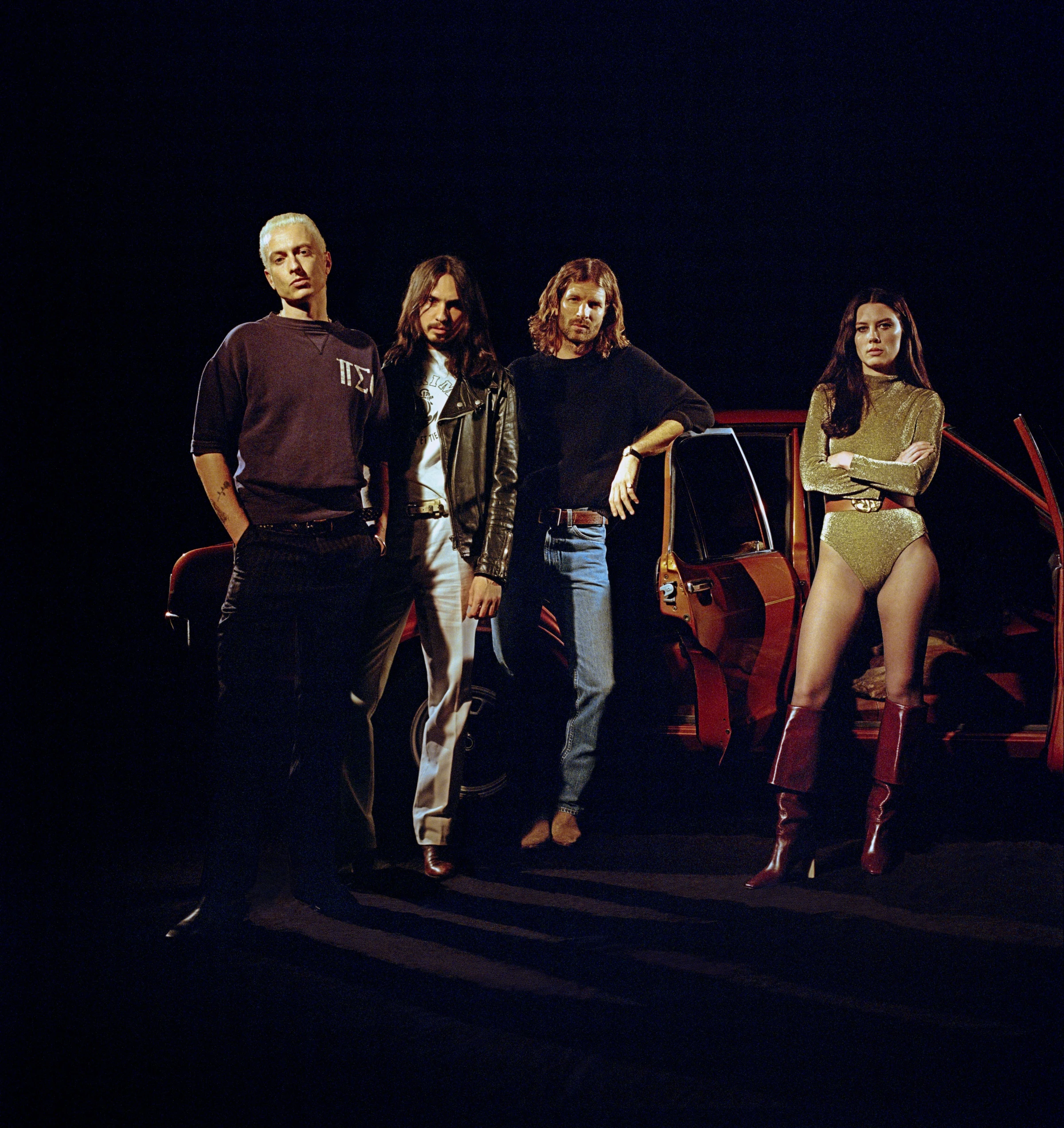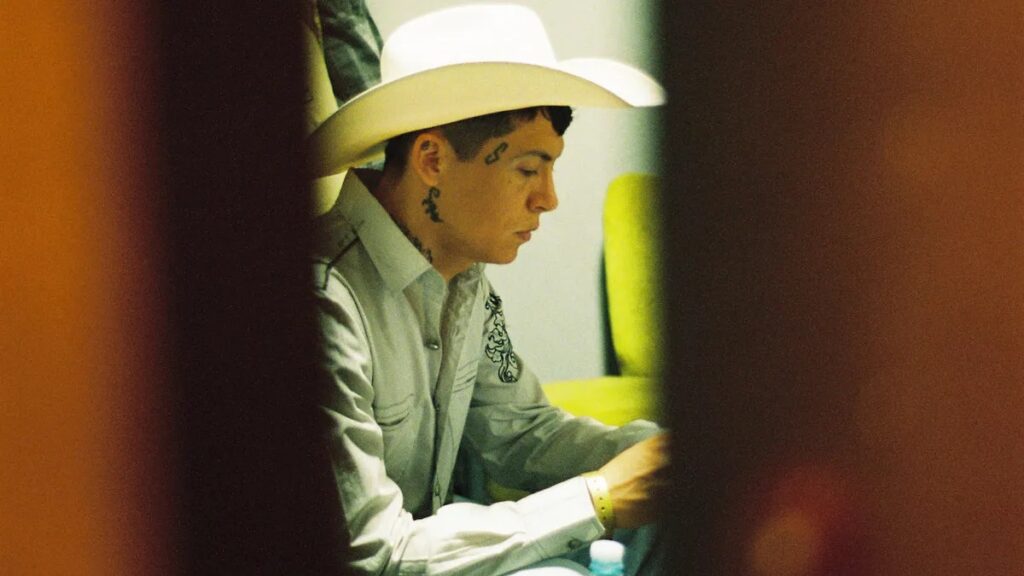A year after Beyoncé drew the world’s attention to the erasure of country music’s Black history, the hit movie “Sinners” is keeping the conversation going with its tale of white villains trying to steal the genius of a Black blues musician.
There is, in fact, a very tangible through-line from Cowboy Carter to the music of Ryan Coogler’s period horror film, and her name is Rhiannon Giddens. The old-time banjo expert, who’s also established herself as a virtuoso singer and composer across disciplines, contributed to both of those blockbuster projects. She played the circling old-time banjo figure that opens “Texas Hold ‘Em” and both consulted on and contributed a traditional fiddle-and-banjo tune to the film soundtrack.
Even so, mainstream pop culture isn’t Giddens’ typical domain. “I love pop music,” she says. “I love movies. But trying to be a traditional musician in these things is very strange.” She took on those gigs for the sake of her mission to revive the knowledge and practice of Black banjo playing.
“I used to say, ‘Once Beyonce puts the banjo on a record’ — I said this years ago before I was ever on Cowboy Carter — ‘my job is done.’ That’s not true. I knew it when I said it. But every little bit helps,” Riddens said. “How it’s used in ‘Sinners,’ I mean, that’s a big step too.”
‘I’m aware that this is a movement’
What’s gained less notice is the fact that the grassroots movement to reclaim the Black roots of folk and country music is having its own moment, and Giddens put her cultural capital behind amplifying it with a festival, called Biscuits & Banjos, in Durham, North Carolina. She designed the three-day lineup around Black scholars of literature, foodways and, above all, roots music — most of whom perform — who are sharing in the work of excavation and reclamation.
More: Carolina to ‘Cowboy Carter’ and back: A celebration of Black roots music finds a home
As Giddens sees it, she just happens to be the figure in that scene with a platform large enough for Beyoncé and Hollywood to come calling, which also means that it’s spacious enough to share. “I’m aware that this is a movement and it’s not just me,” she says. “The whole idea was that this aspect of what we’re doing in our culture, I don’t feel like it’s celebrated enough.” Certainly not within a music industry that’s historically exploited or excluded them, or both, which is why she knew it was important that she and her team create a festival outside that system:
“Let’s do something that is not about how much money it’s going to make. It’s not about what big brands we can bring in.”

‘Not the raisin in the oatmeal‘
The intention was to make some of the festival programming accessible to the Durham community at no cost, and Giddens partnered with the nonprofit Unmanageable to secure the necessary grants. But for her, the top priority was convening her peers at Biscuits & Banjos.
“There are a lot of people doing this work and we’re all exhausted,” she emphasizes. “I needed a festival where we felt like we were not the only ones, that we were not the raisin in the oatmeal, and we were not carrying the load of trying to tell the story on our own. You know, for one weekend, we could see the fruits of all of our labor.”
They’ve been cultivating those fruits for a good, long while. Twenty years ago, Giddens attended a conference at Appalachian State called the Black Banjo Gathering, where she met a couple of other curious, 20-something musicians, Dom Flemons and Justin Robinson. They embraced fiddler Joe Thompson as their mentor — the last active representative of his Black string band tradition in the Piedmont region — and formed their own string band, Carolina Chocolate Drops.
Flemons noticed right away that people responded to the trio’s deftly entertaining performances, and decided that he should document everything: “Because I knew that eventually, if Carolina Chocolate Drops could bridge the gap between ancient string band music and modern string band music, kids that are not white could see that there’s a choice. Because before the conversation was, especially when it came to African-American people, ‘I don’t feel comfortable because I see no African- American people playing the music.’ ”
‘A certain freedom’
Kaia Kater was feeling very self-conscious about learning old-time banjo as a Grenadian-Canadian pre-teen — until she caught her first Chocolate Drops show. “That was the first time I’d ever seen another Black person playing the banjo ever,” she marvels. “And I was a musical kid. I’d been to tons of folk festivals, tons of bluegrass festivals.”
And here were musicians just the right age to capture Kater’s youthful attention, connecting her to a lineage she knew nothing about.
“It felt like I was catching up to history,” she says. “The Drops weren’t starting from zero. They were starting from this very embodied understanding that the banjo is a Black instrument, it’s a Black Caribbean instrument, it’s Black American instrument. As a kid, that’s what I remember holding on to: ‘Oh my god, I have to know more about this right away.’”
The Drops eventually disbanded to pursue solo ambitions. Kater went on to make her name as a conceptually sophisticated and award-winning banjo-playing singer-songwriter, but was often one of the few artists of color booked at primarily white events. She finally felt like she was part of a movement when she entered spaces created by and for Black roots performers — like a small festival that another banjo player, Brandi Waller-Pace, saw a need for five years ago in Fort Worth.
“Having something that doesn’t rely upon external validation makes a huge difference,” they say. “There is a certain freedom in it: ‘And now that we’re here, we can breathe a little bit and be centered on ourselves, not centered in having to defend ourselves.’”
Guards were definitely let down at Biscuits & Banjos, as Waller-Pace sat in with the Black string band that Kater co-founded, New Dangerfield; the Chocolate Drops reunited; Rissi Palmer put on her Color Me Country Revue; and a host of other artists teamed up on stage and in panel discussions.
Giddens couldn’t have been happier: “To have artist after artist come up to me and be like, ‘Yo, I feel full. I feel cared for. I’m walking away from this lighter.’ That’s everything to me.”




